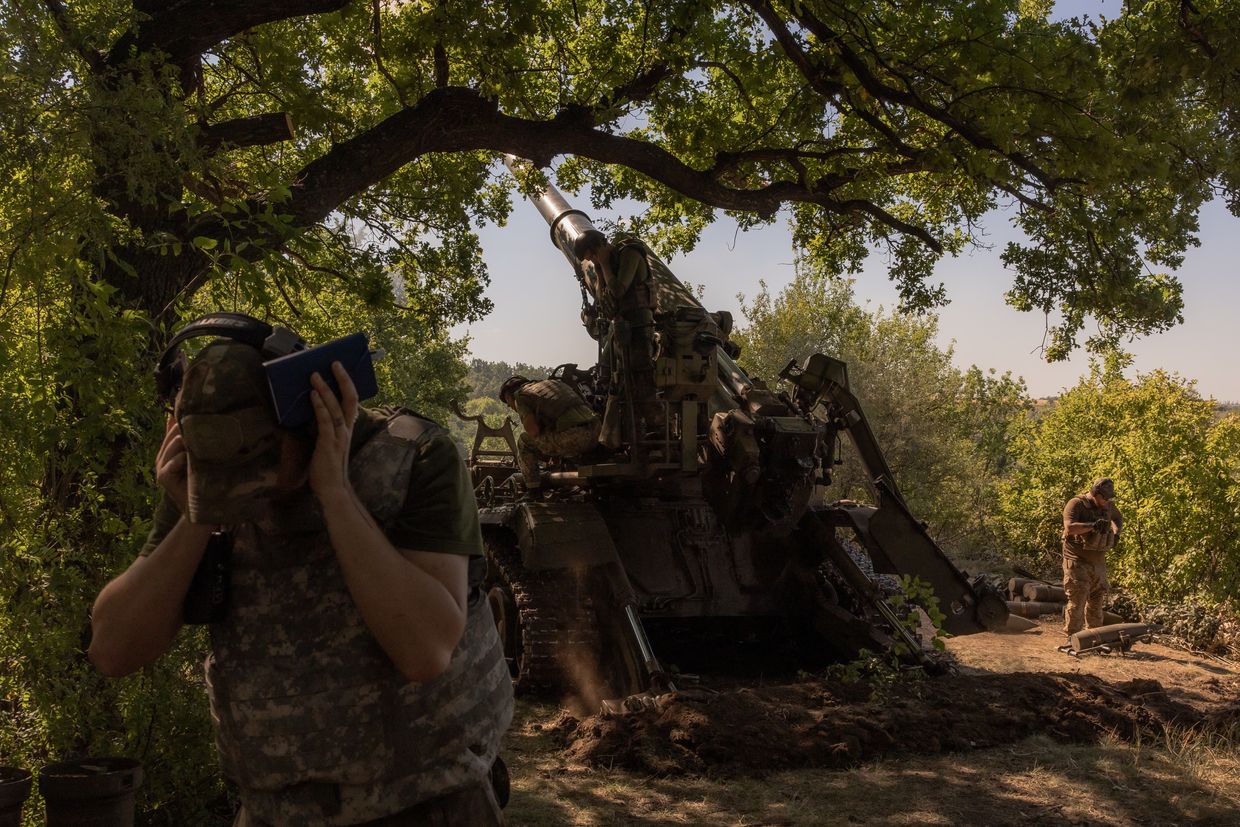Zelensky joins Ramstein summit to lobby for air defenses, long-range arms for Ukraine

President Volodymyr Zelensky arrived at the Ramstein Air Base in Germany on Sept. 6 to take part in the Ukraine Defense Contact Group (UDCG) meeting amid Kyiv's calls for air defenses and long-range arms to fend off Russian aggression.
In a rare step, Ukraine's head of state is attending the 24th meeting in person to lobby for faster aid deliveries. The U.S.-led group, consisting of over 50 countries, including all 32 NATO members, was set up to coordinate allied defense deliveries to Kyiv.
"We need our partners' determination and the means to stop Russia's aerial terror," Zelenskys aid on X.
"It is crucial that all the weapons from the already announced support packages finally reach the combat brigades. We also need strong long-range decisions from our partners to bring closer the just peace we are striving for."
The Ramstein meeting is taking place just as Russia is yet again ramping up aerial strikes against Ukrainian cities, underscoring Ukraine's need for faster air defense deliveries. Moscow's troops also continue their pressure in Donetsk Oblast, namely toward a key logistics hub of Pokrovsk.
As customary, the Sept. 6 meeting is chaired by U.S. Defense Secretary Lloyd Austin. It will be the first meeting in nearly three months, with the last one taking place on June 13. Austin said that the meeting would address Ukraine's most urgent needs, namely air defense capabilities to counter Russian drone and missile attacks.
Opening the meeting alongside Austin, Ukraine's Defense Minister Rustem Umerov, and Chairman of the Joint Chiefs of Staff Charles Q. Brown, Zelensky thanked the partners for defense deliveries but stressed that many of the pledged anti-aircraft systems are yet to be provided.
A day earlier, Romania's president gave final approval to the delivery of an additional Patriot air defense system to Ukraine. Two other systems, along with the at least four already operating in Ukraine, are expected from the U.S. and the Netherlands.
Zelensky also plans to push the allies to deliver more long-range arms. Kyiv has said that Western restrictions on strikes within Russia and the insufficient supplies of long-range weapons hamper Ukraine's ability to strike back against Russian attacks.
"Russia's attempts to draw red lines simply do not work," Zelensky said during his opening remarks. The U.S. and the U.K. have maintained restrictions on the use of long-range weapons like ATACMS or Storm Shadow within Russia, naming the fears of escalation as one of the key reasons.
"We need to have long-range capabilities... so Russia is motivated to seek peace," he added.
Zelensky reminded that thanks to the partners' support, Ukraine was able to carry out "important operations" in Crimea and elsewhere that helped to "restore security to the Black Sea and restart food exports."
"(Russian President Vladimir) Putin who doesn't want peace...He wants our cities, or the ruins that remain of them."
As the meeting took off, Austin also unveiled that the U.S. is set to announce a new $250 million defense aid package for Ukraine later on Sept. 6.
"It will surge in more capabilities to meet Ukraine's evolving requirements. And we’ll deliver them at the speed of war," Austin said. Another defense aid package, consisting of 650 Lightweight Multirole Missiles (LMM) worth over $213 million, was announced earlier today by the U.K.
As part of his visit to Germany, Zelensky is expected to meet German Chancellor Olaf Scholz in Frankfurt am Main.
On Sept. 4, Scholz said that Germany ordered an additional 17 IRIS-T air defense systems for Ukraine, Bloomberg reported. By 2026, Ukraine should receive 24 IRIS-T systems from Germany — 12 of medium-range versions and 12 short-range.
After his visit to Germany, Zelensky will head to Italy for the Ambrosetti International Economic Forum to meet with Italian business leaders and for talks with the country's prime minister, Giorgia Meloni.

















